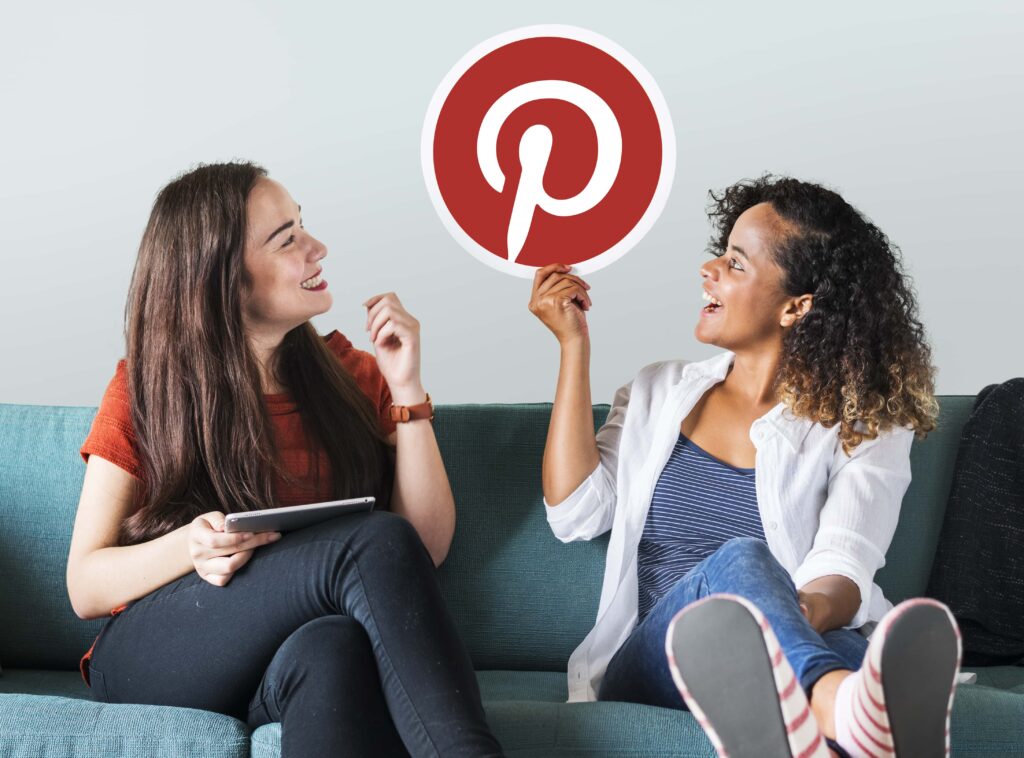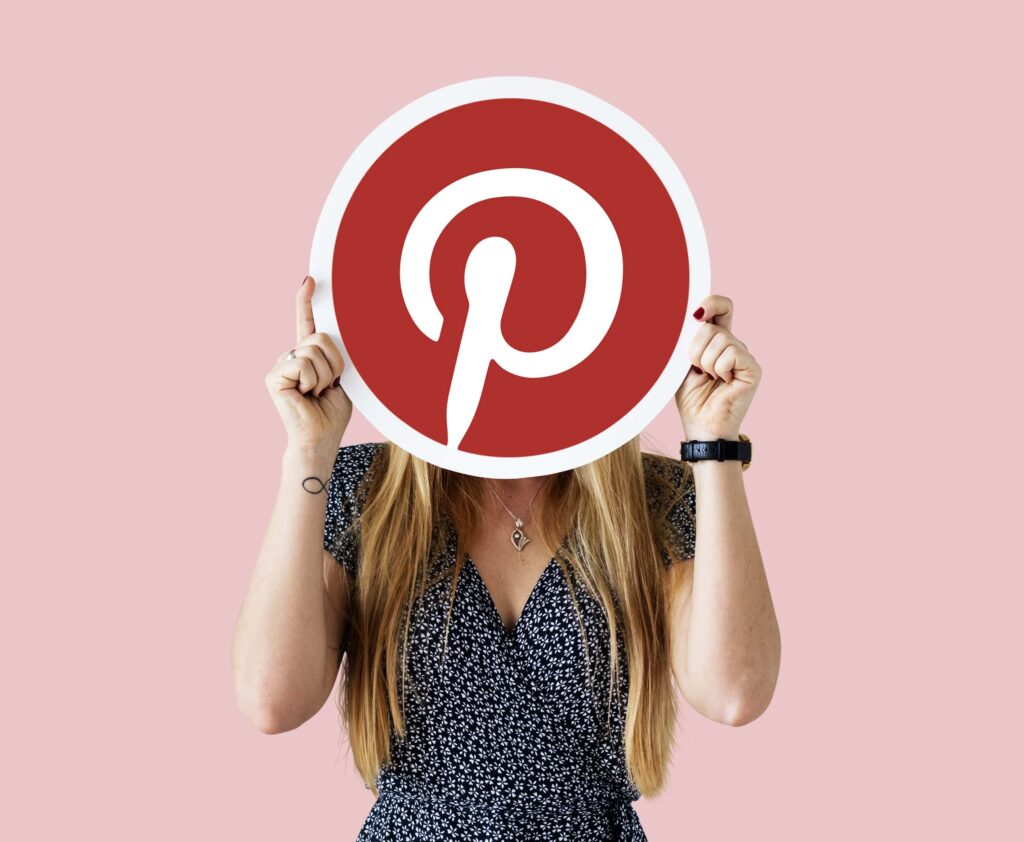Wondering about the pros and cons of Pinterest? Well, let’s dive into it! Pinterest is a popular social media platform that offers a unique space for users to share and discover visual content, making it an ideal place for businesses to showcase their products and services.
Pinterest is used for a variety of reasons such as selling digital products, promoting recipes and products, and bringing traffic to your website.
However, as with any platform, there are some pros and cons of Pinterest to consider. While Pinterest is a treasure of creativity, there’s a risk of copyright issues cropping up when users share content they don’t have the rights to.
Pinterest might not be the perfect fit for every business type, so it’s essential to weigh the pros and cons of Pinterest before creating your account.
Despite these potential drawbacks, Pinterest remains a valuable tool for your business if you are seeking to engage with your target audience through visually captivating content.
So, let’s look at the benefits and drawbacks of Pinterest in detail.

Which Businesses Should Use Pinterest?
Pinterest offers a diverse landscape for businesses to grow, but it’s essential to know if your business should be on Pinterest or not. We have seen that these businesses usually find success on Pinterest:
Lifestyle Brands:
is the perfect platform to share your products and inspire your audience with your lifestyle offerings.
E-commerce:
If you run an online store or retail business, Pinterest is the perfect place for you. Showcase your products, create shoppable boards, and drive traffic to your website.
Art and Craft:
Pinterest is the place for you to display your creations, find inspiration, and connect with fellow creatives who share your passion.
Weddings:
Showcase your portfolio, curate dreamy inspiration boards, and connect with brides-to-be planning their special day.
Travel:
Travel brands and destinations can use Pinterest to showcase their offerings, inspire travel plans, and find clients online.
Health and Wellness:
Whether you’re a fitness guru, a nutritionist, or a wellness coach, Pinterest is your wellness hub. Share healthy recipes, wellness tips, and promote your products and services to health-conscious Pinners looking to improve their well-being.
Food
If you love cooking then you can create a loyal fan base on Pinterest. You can send people to your TikTok, Instagram, and even website to connect with you
Pros and Cons of Pinterest
Pinterest has proven to be among the fastest-growing social media sites with over 498 million active users every day. Such a big number creates opportunities for businesses of all sizes and categories. Let’s look at some of the advantages of using Pinterest first:
1. Massive User Base:
With over 498 million active users worldwide, Pinterest provides your businesses with a vast audience to reach, engage, and convert into customers.
Almost a third of these total users are from the United States so if you are drop shipping or promoting digital products then Pinterest is the place for you
2. Shopping Destination:
47% of Pinners log onto Pinterest with the intent to shop, making it four times more effective at generating sales than other social media platforms.
3. Hyperlinked Pins:
When you post an image or video on Pinterest you can directly link it to your website or other social media platforms to drive traffic there too.

4. Extended Lifespan:
The half-life of a Pin is an impressive 3.5 months, significantly longer than that of posts on other social media platforms like Facebook. This extended lifespan ensures that Pins continue to generate engagement and visibility over time, maximizing their impact and reach.
5. Open Boards:
All boards on Pinterest are open which allows users to view and engage with your pins.
6. Minimal Pressure:
Unlike traditional social media platforms, Pinterest reduces the pressure of leaving comments, allowing you to focus on following other users and repinning images that resonate with them.
7. Time Efficiency:
You can find inspiration for almost anything on Pinterest, saving you the time of brainstorming and coming up with ideas.
8. Ease of Use:
Pinterest’s user-friendly interface makes it accessible to users of all ages, including children. Its organized layout and extensive collection of ideas enable users to explore, discover, and share content effortlessly.
Cons of Pinterest
While Pinterest might provide you with many opportunities there still are some drawbacks to consider before getting on Pinterest which are:
1. Limited Audience Reach:
Pinterest tends to attract a specific demographic, with the majority of users being women aged between 25 and 50. This can pose a challenge for your business targeting a more diverse audience, particularly if you are aiming to reach male demographics.
2. Time-Consuming Nature:
With Pinterest’s emphasis on fresh content and the need for high-quality images, maintaining an active presence on the platform can be time-consuming.
3. Competition for Visibility:
As more businesses join Pinterest, competition for visibility and engagement intensifies. Standing out in the crowd can be challenging. This is more complex if you have a small business and can’t dedicate time to Pinterest.
4. Learning Curve:
Understanding and navigating Pinterest’s algorithm can be difficult for businesses, especially those new to the platform. If you want to go viral on Pinterest you will need some time to study Pinterest Algorithm.
5. User Intent:
60% of Pinterest users primarily seek inspiration rather than immediate purchase decisions, which can impact direct sales for businesses. Convincing users to move beyond inspiration and take action, such as making a purchase will require you to create a great marketing funnel.

6. Risk of Inappropriate Content:
Pinterest’s open nature means that users may come across inappropriate or irrelevant content, including ads that may not align with their interests or values. While users can block such content, the presence of potentially objectionable material can detract from the overall user experience.
7. Potential for Pinterest Fails:
While Pinterest offers a wide range of creative ideas, not all projects turn out as expected. You may experience frustration or disappointment when your attempts to replicate Pinterest-inspired ideas result in less-than-desirable outcomes.
8. Time Wastage:
Engaging with Pinterest can become a time-consuming activity, particularly if users find themselves saving pins without actually utilizing them. Falling into the trap of passive pinning without taking actionable steps can lead to wasted time and minimal value gained from the platform.
Who Should Use Pinterest
Pinterest is an excellent platform for businesses in visually-driven industries such as fashion, food, home decor, and travel. If your business revolves around showcasing visually appealing products or services, Pinterest provides an ideal space to reach your potential customers.
If your business is looking to inspire and engage with its audience through creative content then it can benefit from Pinterest’s visual format.
Wedding planners, photographers, artists, crafters, and DIY enthusiasts can also use Pinterest to showcase their work and connect with their target audience.
Make sure that you have enough time to create and post content on Pinterest regularly to maintain an active presence on Pinterest.
You can learn more about how often to post on Pinterest in our guide.
Who Shouldn’t Use Pinterest
While Pinterest offers significant benefits, it may not be suitable for every business. If your target audience does not align with Pinterest’s predominantly female user base aged 25 to 50, you may struggle to reach your desired demographic effectively.
If your business has limited resources and time to maintain a consistent presence on Pinterest then it can become difficult for you to succeed on Pinterest.
Suppose your business does not rely on visually appealing content or does not have the resources to invest in Pinterest’s unique format. In that case, it may be more beneficial to focus on other marketing channels.
Businesses seeking immediate sales conversions rather than brand awareness or inspiration-driven engagement may find Pinterest less conducive to their goals.
Conclusion
It is important to weigh the advantages and disadvantages of using Pinterest for your business. The pros of Pinterest include its large user base, high engagement, and visual-driven platform, making it an effective tool for reaching a broad audience and driving traffic to your website.
It is also essential to consider the cons of Pinterest, such as its time-consuming nature, limited demographic, and competition for visibility.
You should evaluate the pros and cons of Pinterest and whether it aligns with your business goals and target audience.
If you choose to start with Pinterest you should be leveraging the strengths of Pinterest while mitigating its challenges. This can help you maximize the platform’s potential for your business.
